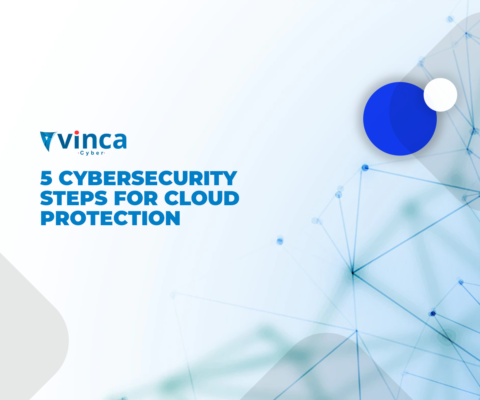As technologies like the cloud are evolving, the majority of talks worldwide focus on the present and future benefits that the cloud provides to businesses, individuals, and society at large.
To summarize, especially in the case of the cloud, it removes the boundaries like physical, time, and resources of doing work. But when benefits lack appropriate security, they become a cause of cyber breaches that in turn hamper customer trust, enterprise growth and other business consequences.
In this article, our security experts highlight cybersecurity steps that are essential at both an individual and business level to maximise cloud benefits and help businesses achieve a protected cloud-based business environment.
-
Encryption and Two-factor authentication (2FA)
It is impossible to imagine the much-needed digital privacy without an encryption system. At an individual or business level, an encrypted cloud service gives confidence that sensitive information has a limited reach of trusted sources. Hence, considering a cloud service provider that encrypts your files both on your local computer and in the cloud is critical for security.
Along with encryption, 2FA provides an extra layer of security for your passwords and data. The 2FA techniques use a variety of methods like trusted device approval, OTP, backup codes, security questions, and others to ensure that if someone does get access to your password, your data is still protected.
-
Backup and Restore facility
Data in the cloud is just one benefit. Providing a backup and restore facility is essential, especially for organisations to avoid any data loss. It allows for the elimination and minimization of any hardware or software failure with a proper backup copy in a separate system or medium.
These mediums can be an external drive, USB stick, disk storage system, cloud storage container, or tape drive. This helps enterprises minimize cyber mitigation costs, ransom costs, and other typical operational or operating losses.
-
Access controls and Endpoint security.
As the cloud provides flexibility to users to access information and applications from any location at any time, it’s critical to have a defined control system so that data is not present everywhere. This means setting up role-based access controls to ensure a user is only accessing the files and information they need to and knows confidentiality and protection methods.
To strengthen access control systems, tech-forward organisations these days are adopting cloud-based endpoint security to plug in any loopholes and vulnerabilities that may arise due to unprotected networks, servers, or websites. Endpoint device security helps businesses filter safe traffic entrances and accelerate time-to-value, improve agility and scalability, and increase visibility and resiliency.
-
Employees Training
As a famous says, “The power lies in the user’s hand.” Even an advanced world-only security control tool or technology, if not handled or managed, will fail to offer the desired security standards.
As the cost of data breaches and consequences touch new heights, these risks can’t be fully understood and valued unless employees understand what is at stake and know how to safeguard them.
Hence, regular employee training these days is imperative. This training can be targeted to avoid phishing and email scams, standards and protocols for accessing data and passwords, or for knowledge of tools and device usage.
-
Should know the Terms and Conditions
No doubt the “Terms and Conditions” are never read, but for an enterprise with a lot of people and many things at stake, it’s essential to sign up for cloud services after reading the user agreement completely. This informs users about how the service will protect essential permissions, rules, and regulations set by the provider, and also provides clarity of what would be done in the case of unplanned circumstances.
Conclusion
These days, it’s rare to find enterprises without using cloud functions in some or another way. It also highlights those cyber-attacks deployed are not only meant for large enterprises and don’t discriminate against the extent of cloud use.
It’s critical for enterprises to follow cloud protection protocol either by setting up an in-house security team or deploying an outsourced managed security service provider. Vinca Cyber’s outsourced security services not only save businesses money on cyber costs and downtime but also provide round-the-clock training modules to plug any gaps, whether machine or human.
Our vast experience of serving 100+ global clients with more than 200+ technology certifications and global security partners has evolved us into an industry-leading end-to-end cyber partner. To know more mail us at: [email protected]

